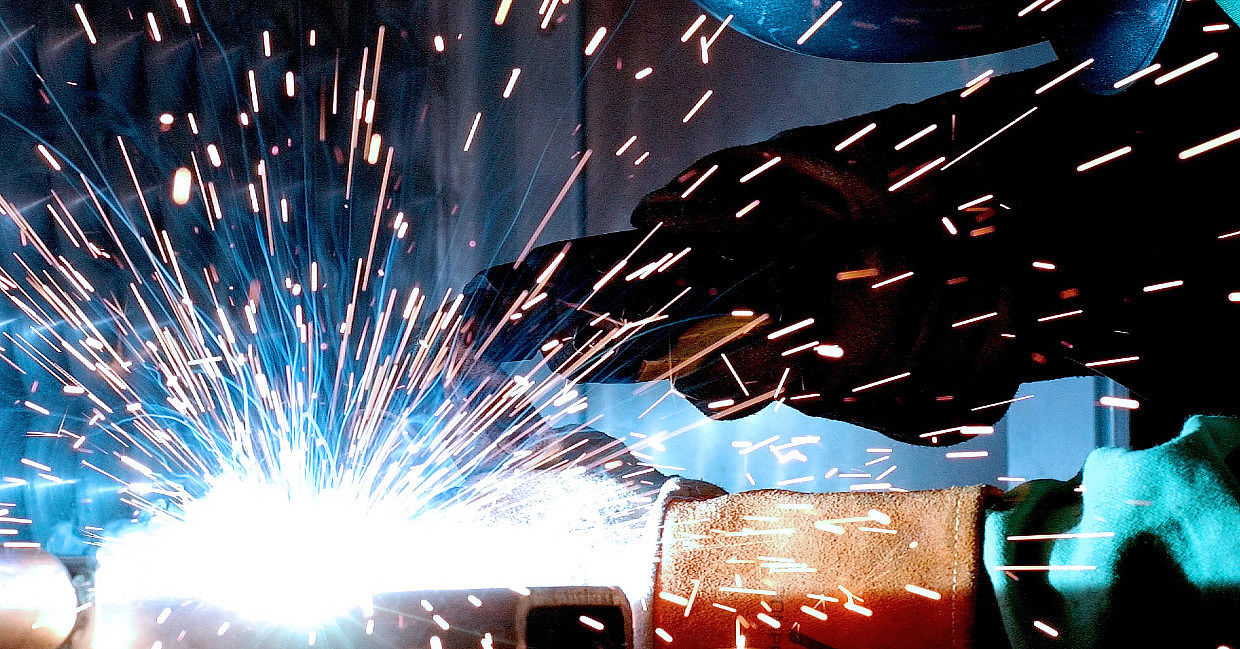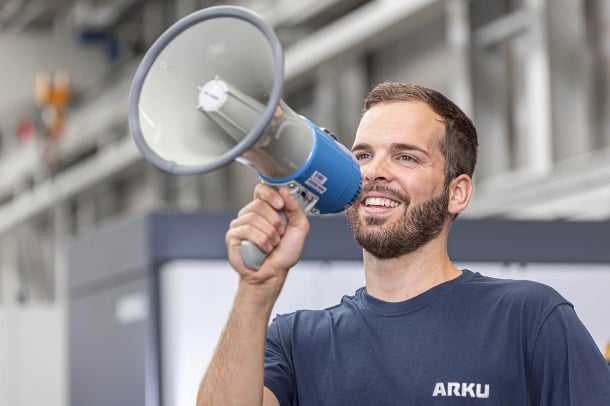Working with sheet metal can be challenging. The metal itself can be out-of-flat or bend unexpectedly during cutting, which can negatively impact cutting results. Fortunately, there are ways to address these issues, and we'll show you how.
Whether the parts or sheets are out-of-flat or whether they bend during further processing steps (such as welding for example), the cause is often the same, residual stresses. These stresses arise when the material is subjected to high mechanical or thermal stress. In cold rolling, punching, or shearing, the mechanical efficient is the cause; during flame (oxyfuel and plasma) cutting, or laser cutting, it is the thermal influence. Hot rolling involves both mechanical and thermal factors.
Residual stresses make life difficult for sheet metal workers
These residual stresses in sheet metal are difficult to control. They can only be measured at such great expense that it is not practical for any sheet metal worker. They are also not necessarily visible: a crooked sheet is indeed an indication that residual stresses are contained. However, this can be just as true for a straight sheet.
In sheet metal working, many processes are affected by residual stresses. This already starts with laser cutting: if a cutout suddenly jumps up from the sheet metal and hits the laser head, it can be damaged. Such a laser head is expensive and timely to replace. So it's better to use sheets that you can be sure are free of residual stresses.
Increase the number of strokes when punching with leveled sheets
Punching can also benefit if the sheets are stress-free prior to punching. This allows the number of strokes to be increased without the machine or die suffering. The parts output of the punching machine increases, as does its cost-effectiveness.
During bending, the residual stresses become noticeable in two ways: First, they lead to angularity errors because the springback is different than expected. And secondly, the tools are loaded more than usual, which increases wear.
/Verfahren/2022-web-verfahren-Teile_Stanzen.jpg?width=610&height=379&name=2022-web-verfahren-Teile_Stanzen.jpg)
Low-stress sheet metal parts can be welded better
When it comes to welding, the residual stresses in the sheet metal also cause difficulties. The components are more difficult to clamp and setup takes longer. Welding workstations are often a bottleneck in production, and welders are scarce. All the more reason to focus on efficiency here and eliminate residual stresses in good time. Incidentally, welding robots don't cope well with crooked sheet metal parts either. They work with tight tolerances and quickly report a lot of scrap if the material shows distortion due to too much residual stress.
Heat is then introduced into the components during the welding process. It can further increase existing residual stresses. This can result in the welded assembly no longer being dimensionally accurate at the end. Time-consuming and expensive reworking is then required.

A leveler provides the remedy
Fortunately, there is an antidote. If you want to be sure that your sheets and sheet metal parts are free of residual stresses, you have to level them. Levelers adapted to the task at hand are available in a variety of designs, so no one has to put up with residual stresses anymore.
The levelers eliminate the stresses in the sheet by bending it up and down alternately with rollers. The bends become smaller and smaller towards the outlet. This not only reduces stresses in the parts and sheets, but also makes the material as flat as possible. This also facilitates work and compliance with tolerances.
Magazine home page
